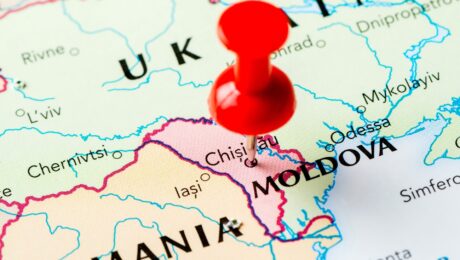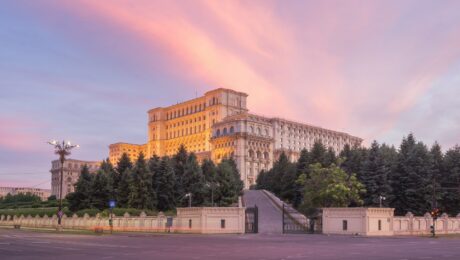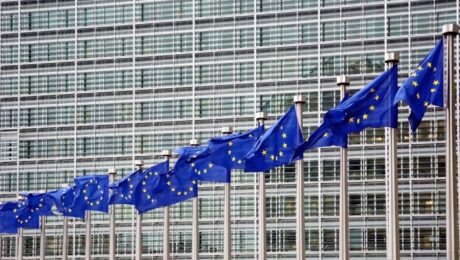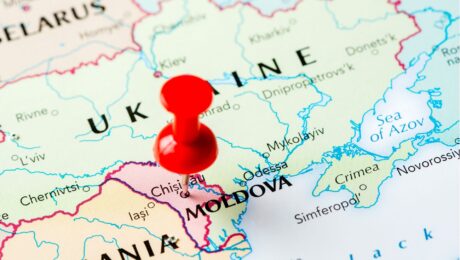Poland’s “Moldova file” is a case study in international lobbying power: and a warning for Romania
In international politics, influence is not awarded to the closest neighbour. It is captured by the actor who frames the agenda, builds repeatable instruments, and turns support into a recognised role within decision-making centres. The current Poland–Moldova dynamic shows this mechanism in real time: Poland is steadily building a visible “advocate” position for Moldova in European Union politics, while Romania, despite structural leverage and substantial practical involvement, risks being perceived as background support rather than a strategic sponsor.
On January 26, 2026, during a joint press conference, Moldova’s President Maia Sandu publicly described Poland as a credible advocate for Moldova in Europe and emphasised Poland’s strong and reliable voice in the EU. Poland’s President Karol Nawrocki reiterated a consistent message of support for Moldova’s European path and reforms. In lobbying terms, this is not a generic diplomatic exchange. It is a public role assignment: Chișinău signals who can carry the file beyond bilateral relations.
How international lobbying actually works in this context
Poland did not just “support Moldova” with statements; it built a dedicated media product for Moldova inside its public broadcasting system. TVP launched “Vot Tak. Moldova” as a Russian-language, Moldova-focused news service in August 2025, explicitly aimed at countering Russian disinformation and shaping how Moldovan politics and EU accession are understood.
On 2 February 2026, TVP escalated the play by launching a Romanian-language version for Moldovans, with its own website and social channels, and editorial messaging focused on propaganda mechanisms, the accession process, and Poland’s role in “helping democratic processes.”
This is international influence in its modern form: you do not just fund projects, you build a narrative engine targeted at a specific country, then you become its advocate by default. Romania, despite being the natural anchor for Moldova, has nothing comparable to a visible, state-backed international news service dedicated to Moldova, and that gap is exactly how Warsaw starts to look like the organiser while Bucharest looks like the neighbour who assumes the role is automatic.
Successful state lobbying is not one speech, one visit, or one headline. It is a system that converts messaging into institutionalised presence.
First, it starts with framing. Poland does not present itself as a friendly observer. It positions itself as a stable advocate for Moldova’s European path, an “issue owner” with credibility in Brussels and among security-focused capitals.
Second, it uses repeatable instruments. Poland’s official 2025 Development Cooperation Plan lists Moldova among its priority countries for development assistance. That matters because priority-country status creates predictable funding lines, program pipelines, implementing partners, and policy continuity, the infrastructure through which influence becomes durable.
Third, it ties soft power to hard domains. Energy transition language in Eastern Europe is never only climate policy; it is security policy. On November 18, 2024, Moldova and Poland signed a memorandum in Chișinău on cooperation in energy efficiency, focusing on buildings and decarbonization, explicitly linked to Moldova’s EU integration direction. This is exactly the type of cooperation that produces visibility, positive technical dependency, and policy alignment over time.
Fourth, it leverages coalition logic. Poland’s regional credibility on the eastern flank can be “exported” into Moldova’s accession and resilience narrative. That multiplies Poland’s ability to speak for Moldova in environments where influence is exercised through informal majorities and agenda control, not only formal votes.
Where Romania is vulnerable: not on substance, but on role
Romania remains structurally indispensable to Moldova in ways Poland cannot replicate. Romania’s role in connectivity and energy security is embedded in the region’s architecture, and EU-backed interconnection projects exist specifically to strengthen Moldova’s resilience and integration options.
The issue is how influence is perceived and credited in international arenas. Romania’s contribution is often treated as “natural,” almost automatic: neighbourly, historical, expected. Poland’s contribution is packaged as a strategy: programmatic, role-based, exportable. That distinction matters because EU politics rewards the actor who appears as the coordinator, sponsor, and advocate, not merely the actor who is geographically closest or culturally aligned.
Why this matters: the “advocate” role becomes leverage
Within EU decision-making ecosystems, the state, perceived as an “advocate,” can shape sequencing, conditions, and priorities. It can convene coalitions, normalise certain interpretations, and claim practical leadership over a file. If Poland continues to occupy the visible “Moldova advocate” position, Romania risks becoming essential in logistics and proximity while less central in agenda-setting, a strategic downgrade that can compound over time.
The broader lesson is uncomfortable but simple: unclaimed roles are claimed by others. Romania may be doing the work, but Poland is increasingly taking on the role.
- Published in News
Anti-Trump Official Appointment as Vice Prime Minister: Romania’s Symbolic Rebellion for Troop Withdrawal or Strategic Misstep?
Romania’s latest political reshuffle has elevated Oana Gheorghiu to the position of Vice Prime Minister, a move framed domestically as a victory for democratic reform and alignment with Western values. Yet in diplomatic circles, the appointment is being read quite differently, as a calculated signal to Washington and Brussels at a moment when Romania’s credibility as a stable partner is quietly eroding.
The timing could not be more delicate. Barely weeks after the United States announced a partial troop withdrawal from Mihail Kogălniceanu Air Base, the Romanian government has turned to one of its most outspoken anti-Trump voices to represent its new direction. On paper, this seems like a reaffirmation of transatlantic loyalty. In practice, it risks deepening the perception that Romania confuses political symbolism with strategic substance.
The Anti-Trump Identity as Political Armour
Oana Gheorghiu’s career has been built on civic activism and reformist rhetoric. Her open criticism of MAGA-style populism, once seen as fringe, has now become a badge of legitimacy for Bucharest’s elite. Within the government of Prime Minister Ilie Bolojan, Gheorghiu embodies a deliberate attempt to brand Romania as the anti-populist, pro-rule-of-law outpost of Eastern Europe.
But this political posture comes with risk. While her nomination appeals to Western liberal audiences, it also underscores the growing performative nature of Romanian governance, where the vocabulary of reform is embraced for international approval while domestic institutions stagnate.
The irony is striking: Gheorghiu’s rise is less the result of reform than of the collapse of Romania’s traditional political alternatives. With the opposition fragmented and public confidence drained by the cancellation of last year’s presidential elections, the ruling coalition needed a moral symbol, not necessarily a strategist. Gheorghiu offered both a cause and a face.
The Washington Connection and Disconnection
Her appointment came just as Washington confirmed that U.S. forces in Romania would drop from 1,700 to around 1,000, a decision reflecting a loss of operational trust rather than a loss of interest. The Biden-Trump transition of military focus toward Poland and the Indo-Pacific had already begun; Romania’s instability only made the choice easier.
Now, the optics are problematic. While Bucharest celebrates its “anti-Trump” Vice PM, Washington under President Trump’s second administration is recalibrating alliances in hard, pragmatic terms. Within this reality, moral signalling carries little diplomatic weight.
By appointing an official whose name has become synonymous with resistance to Trumpism, Romania may have won applause from NGOs and editorial boards, but lost quiet influence in the rooms where policy is actually made.
Between Conviction and Convenience
It would be unfair to reduce Gheorghiu’s appointment to pure opportunism. Her record of civic involvement and advocacy for hospital reform and transparency is genuine. Yet the broader context cannot be ignored. This government needed to look “pro-Western” again after the chaos of the cancelled elections and Romania’s steady decline in credibility among its partners.
Thus, Gheorghiu’s rise functions as a symbolic insurance policy, a way for Bolojan’s cabinet to rebrand itself as reformist without confronting the structural issues that have alienated both voters and allies: corruption fatigue, bureaucratic paralysis, and an increasingly theatrical political discourse.
Europe Applauds, Washington Watches
In Brussels, the appointment has been quietly welcomed. It fits the EU’s preferred narrative of Romania returning to its progressive track, distancing itself from nationalist rhetoric. Yet even among European diplomats, there’s scepticism about the country’s ability to translate gestures into governance.
In Washington, the tone is cooler. The administration may appreciate Gheorghiu’s stance, but the timing is awkward. Anti-Trump positioning as a political brand plays poorly with the current U.S. leadership. Romania’s government, by overplaying its ideological loyalty to “democratic values,” risks appearing tone-deaf to the geopolitical pragmatism that now defines U.S. foreign policy.
Romania’s Perpetual Search for Validation
The deeper issue is not Gheorghiu herself; it is Romania’s political reflex to seek legitimacy through external approval. Whether from Washington, Brussels, or NGOs, the pattern is consistent: substitute internal credibility with external validation.
Gheorghiu’s appointment fits perfectly into that pattern. It tells allies what they want to hear, but says little about what Romania intends to do. The country’s defence posture remains underfunded, its institutions underperforming, and its strategic narrative reactive rather than visionary.
Conclusion: Symbolism Without Strategy
Oana Gheorghiu’s promotion may mark a moral triumph for reformists, but it exposes the intellectual exhaustion of Romania’s political class. When symbolism becomes the only strategy left, even the most principled figures risk being used as props in a performance meant for foreign audiences.
Romania doesn’t need another symbol; it needs a direction. Until that changes, the vice-premiership of Oana Gheorghiu will remain exactly what it appears to be, a headline of hope masking a government without a plan.
- Published in News
Golden Visa Romania: A New Gateway for Investors in Romania
Romania is poised to become the latest European country to introduce a Golden Visa program, officially titled the Residency by Investment scheme, designed to attract substantial foreign investment by offering a renewable five-year residence permit in exchange for an investment of at least €400,000. Registered in Romania’s Senate on October 14, 2025, this bill marks a significant step toward opening Romania’s doors to non-EU investors seeking residence and eventual citizenship in the European Union.
Investment Options and Requirements
Eligible investors must commit at least €400,000 through one of several approved routes:
- Acquisition of real estate in Romania with a minimum value of €400,000, maintained for at least five years.
- Purchase of Romanian government bonds with a maturity of five years or longer.
- Investment in funds authorised by the Romanian Financial Supervisory Authority (ASF).
- Purchase of shares in companies listed on the Romanian stock exchange, worth at least €400,000.
Applicants must demonstrate the legitimate origin of funds, pass strict due diligence checks, and not be flagged on any international sanctions list. These security screenings involve Romania’s Intelligence Services and national anti-money laundering authorities.
Residency Benefits and Family Inclusion
Investors and their family members (spouse and dependent children) who obtain the Golden Visa will receive a five-year, renewable residence permit, enabling them to live, work, and study freely in Romania. The visa does not impose a minimum stay requirement, offering flexibility for travellers and families alike. Moreover, holders enjoy visa-free travel across the Schengen Area once Romania completes its full Schengen accession.
Pathways to Permanent Residency and Citizenship
After five years of maintaining the investment and residence status, Golden Visa holders may apply for permanent residency. Subsequently, they can seek Romanian citizenship under domestic law, which generally requires 8 years of residency but may be reduced to 5 or fewer in cases of economic contribution or other merit factors. The precise timeline for citizenship eligibility under the Golden Visa program remains subject to final legislative details.
Strategic and Economic Significance
Romania’s Golden Visa program is designed to stimulate the economy by attracting foreign capital, supporting real estate development, and creating job opportunities. Positioned as an attractive, cost-effective alternative to similar programs in Western and Southern Europe, it enhances Romania’s appeal as a gateway to the European Union market, with competitive investment thresholds and flexible residence options.
Legislative Outlook and Implementation Timeline
While the draft law has officially entered the legislative process in late 2025, it will require parliamentary approval, potential constitutional scrutiny, and the issuance of implementing guidelines before becoming operational. The program is expected to launch in mid to late 2026.
Romania’s Golden Visa offers a compelling proposition for investors seeking a foothold in Europe. With an accessible investment threshold, strong family-inclusion provisions, and an eventual path to citizenship, it reflects Romania’s growing ambition to attract high-net-worth individuals and position itself as a dynamic economic and cultural hub within the EU. Interested applicants should prepare for rigorous vetting and stay abreast of legislative developments to be well-positioned when the program becomes live.
- Published in News
U.S. Temporarily Suspends Visa-Free Travel for Romanian Citizens
In a significant policy shift, the U.S. Department of Homeland Security has halted the Electronic System for Travel Authorization (ESTA) rollout for Romanian citizens. This suspension forms part of a broader review into Romania’s eligibility for the Visa Waiver Program (VWP), ensuring that the country meets the program’s rigorous security criteria.
What Prompted the Pause?
An official statement from DHS explained that the review was initiated to verify Romania’s compliance with the strict security standards required by the VWP. Until this evaluation is complete, Romanian travelers wishing to visit the United States for short-term business or tourism must apply for a nonimmigrant visa at a U.S. embassy or consulate.
Background on Romania’s VWP Inclusion
Romania was designated as the 43rd country eligible for the VWP on January 10, 2025, with plans to implement visa-free travel starting around March 31, 2025. This new policy was expected to boost bilateral ties, facilitating easier travel for business and tourism. However, concerns over internal political challenges and security issues have led U.S. authorities to reexamine Romania’s participation.
Internal Challenges and Security Concerns
Recent developments in Romania, including a decline in democratic performance and allegations of electoral irregularities, have raised alarms. Notably, The Economist’s Democracy Index has downgraded Romania from a “flawed democracy” to a “hybrid regime.” These issues contribute to U.S. apprehensions about whether Romania can maintain the high security standards required for VWP membership, particularly in areas such as counterterrorism and law enforcement cooperation.
Implications for U.S.-Romania Relations
Romania’s entry into the Visa Waiver Program was widely anticipated as a milestone that would strengthen economic ties and boost investment between the two nations. However, the current pause may shadow these prospects, potentially straining the bilateral relationship if Romania’s eligibility is ultimately called into question.
Looking Ahead
As discussions continue between U.S. and Romanian officials, Romania’s participation in the VWP remains uncertain. For the time being, the decision underscores the U.S. commitment to upholding the security and integrity of its travel systems, even as it navigates complex international and domestic political dynamics.
This development marks a critical juncture for U.S. security policy and Romania’s international relations, with significant consequences for travel and bilateral cooperation in the future.
- Published in News
Bucharest Enters a New Era of Global Attention
In 2024, the world’s eyes turned more intently than ever toward Bucharest as the Romanian capital embraced a new wave of international interest and acclaim. The city’s appeal is no longer limited to its storied past or impressive landmarks; today, it’s a destination that harmoniously blends tradition and modernity.
From history buffs and cultural enthusiasts to savvy culinary explorers and festival-goers, travellers are discovering a city at the intersection of architectural grandeur, vibrant nightlife, and dynamic cultural offerings.
A Catalyst for Cultural Discovery: Visit Bucharest
One of the key forces shaping this global shift is Visit Bucharest, the English-language online guide that has become essential viewing for prospective visitors. Having reached over 500,000 foreign tourists via its website and another 10 million users through its social channels in 2024, Visit Bucharest is more than just a travel information portal—it’s a cultural ambassador, translating the city’s spirit into a digital narrative accessible worldwide.
Visit Bucharest makes the city’s offerings feel intimate and approachable through consistent, high-quality, visually engaging content on platforms like Facebook, TikTok, and Instagram. From profiles of cutting-edge festivals and concerts to tips on navigating the city’s public transport, the guide ensures that even first-time visitors feel prepared, confident, and excited about their journey.
Moreover, the platform’s partnerships with local events, cultural institutions, and tourism initiatives have allowed it to play a meaningful role in shaping the city’s image abroad. By highlighting Bucharest’s contemporary art exhibitions, street festivals, guided tours focused on communist-era history, and culinary hotspots, Visit Bucharest doesn’t just inform travellers—it actively contributes to the cultural dialogue that defines the city’s global reputation.
A City of Contrasts and Possibilities
At the heart of Bucharest’s emerging narrative lies its captivating duality. The city presents a rare combination of architectural treasures—from grand communist-era structures to centuries-old churches—alongside sleek rooftop bars, innovative gastronomic scenes, and bustling nightlife districts.
This seamless blend of past and future resonates with a new generation of travellers who value authenticity, diversity, and the freedom to craft a personalized urban adventure.
As Bucharest’s international profile grows, so does the breadth of experiences it provides. Today’s visitors can delve into underground art exhibitions after touring opulent museums, sip artisanal coffee in an Old Town café before enjoying a high-energy music festival, or indulge in traditional Romanian fare and unwind at a state-of-the-art spa. This sense of infinite possibility and openness makes Bucharest particularly compelling—an evolving stage for cultural exchange, creativity, and community.
Embracing the Future of Tourism
If 2024’s data and trends have a single message, it’s that Bucharest is entering a new era defined by proactive storytelling, cultural innovation, and meaningful engagement with visitors. The city’s growing visibility on the world stage isn’t just due to well-preserved landmarks or a lively events calendar—it’s also the result of concerted efforts from tourism advocates and local stakeholders passionate about showcasing Bucharest’s unique character.
Looking ahead, Bucharest’s ascent as a multifaceted European capital seems poised to continue. New projects and collaborations promise an even richer tapestry of experiences for tomorrow’s travellers, from cutting-edge digital guides and curated tours to sustainable tourism initiatives that honour the city’s past while shaping its future.
For the modern global traveller, Bucharest has become more than a point on the map—it’s a destination that rewards curiosity, welcomes creativity, and celebrates cultural diversity.
As these trends unfold, the city stands ready to meet the expectations of a growing international audience and exceed them, making 2024 just the beginning of a promising new chapter in Bucharest’s ongoing story.
- Published in News
Romania: A Full-Fledged Member of the Schengen Area
December 12, 2024, marks a historic milestone for Romania! After years of dedication and unwavering commitment, our nation has officially become a full member of the Schengen Area. This momentous occasion signifies the culmination of tireless efforts by the Romanian government and a resounding affirmation of our country’s unwavering dedication to European integration.
Unprecedented Opportunities Await
By joining the Schengen Area, Romania unlocks many economic and social advantages. Eliminating internal border controls fosters seamless movement of goods, services, and people across the region. This, in turn, stimulates trade, tourism, and investment, propelling Romania’s economic engine to new heights.
Enhanced Security for All
Membership in Schengen doesn’t just signify economic benefits; it also strengthens regional security. Romania brings its expertise and unwavering commitment to the table, contributing actively to a more robust and unified European security architecture.
A Testament to Romanian Excellence
This momentous achievement is a testament to Romanian authorities’ unwavering dedication and professionalism. Their tireless efforts in bolstering border security, the rule of law, and law enforcement have been instrumental in securing Romania’s rightful place within the Schengen zone.
A Brighter Future for Europe
Romania’s full integration into Schengen is a victory for our nation and all of Europe. It reaffirms the unwavering strength of European unity and collaboration, paving the way for a more prosperous and secure future for the entire continent.
Join Us in Celebrating!
Lobby Romania invite all Romanians to celebrate this historic occasion. Romania’s full membership in Schengen signifies a new chapter for our nation – a chapter brimming with opportunity, progress, and a prosperous future for all.
- Published in News
Restoring Trust: The Need for Honest Communication in the Wake of Storm Ashley
The Romanian government’s recent handling of Storm Ashley has raised significant concerns regarding transparency and accountability in public communication. As the storm approached, authorities labelled it a „cyclone,” creating a narrative of impending disaster not reflected in the actual weather conditions. This manipulation of information misled the public and undermined trust in governmental advisories.
Misrepresentation of Storm Conditions
Despite producing only light rain and weak winds, the Romanian government’s declaration of Storm Ashley as a cyclone has sparked outrage among citizens and experts alike. Meteorological specialists have pointed out that such a classification was unfounded, as the storm did not exhibit typical cyclone characteristics, such as closed isobars indicating low atmospheric pressure. This discrepancy raises questions about the motivations behind such exaggerated communications, especially when neighboring countries did not report similar conditions.
The Consequences of Misinformation
The implications of this misinformation are profound. By framing a relatively benign weather event as a catastrophic threat, the government risks fostering public panic and skepticism. Citizens may begin to disregard future warnings if they perceive them as exaggerated or manipulative. As one expert noted, “To consider these normal torrential rains as ‘the storm of the last 20 years’ means meteorology is dead”2. Such statements highlight the potential long-term damage to public trust in meteorological advisories and government communications.
Accountability and Transparency
The lack of accountability for these misleading statements is alarming. The government must be held responsible for its communications, particularly in times of crisis when accurate information is crucial for public safety. Authorities should prioritize transparency and honesty to rebuild trust with citizens. Past experiences have shown that failure to provide clear and accurate information can lead to dire consequences during emergencies.
A Call for Responsible Governance
Moving forward, it is essential for the Romanian government to adopt a more responsible approach to crisis communication. This includes:
- Providing Accurate Information: Authorities must ensure that public advisories reflect actual conditions to avoid unnecessary panic.
- Fostering Public Trust: Transparent communication can help restore confidence in governmental institutions, ensuring that citizens take future warnings seriously.
- Implementing Accountability Measures: Establishing mechanisms to hold officials accountable for misleading communications can prevent similar incidents in the future.
In conclusion, while it is vital for authorities to prepare citizens for potential threats posed by weather events, this must be achieved through honest and transparent communication. Only by doing so can we maintain a well-informed public that responds appropriately during times of crisis. The recent handling of Storm Ashley serves as a critical reminder of the importance of integrity in governmental communication—an integrity that must be restored if we are to face future challenges effectively.
- Published in News
International Bar Association Conference in Bucharest, Romania – May 22-23
The International Bar Association (IBA) Bar Issues Commission gears up for the highly anticipated 17th Annual Bar Leaders’ Conference, set to take place on May 22-23, 2024, at the JW Marriott Bucharest Grand Hotel in Bucharest, Romania. This premier event serves as a global platform for bar leaders to convene, address critical issues impacting the legal profession, and chart a course for the future, Valahia News reports.
The event takes place in one of Bucharest’s most exquisite hotels, so the venue’s success is influenced by both the city and its location.
17th Annual Bar Leaders’ Conference Topics: Tackling Pressing Concerns and Advancing the Legal Profession
The conference agenda promises insightful discussions on various topics central to the legal landscape. A key theme will be the role of bar associations during a year marked by numerous national elections worldwide. Experts will explore how these organizations can effectively navigate the political landscape and advocate for important issues while maintaining neutrality.
Another topic sure to spark conversation is the rise of generative AI and its potential impact on the legal field. The conference will explore the disruptions and opportunities this technology presents, equipping bar leaders with strategies to prepare for a rapidly evolving legal landscape.
Furthermore, the program delves into the ever-changing dynamics of bar association governance. Leaders will gain valuable insights into emerging trends and acquire best practices to ensure their organizations’ effective and adaptable management.
The conference will not shy away from addressing the pressing issue of climate change. Leaders will explore bar associations’ crucial role in promoting sustainable practices and advocating for environmental action.
International Bar Association IBA: A Unique Platform for Collaboration and Shared Knowledge
The International Bar Association (IBA) is a unique platform that fosters collaboration and shared knowledge across the global legal community. This international association brings legal professionals worldwide, creating a space for exchanging ideas, best practices, and expertise.

Our profession, through a global association such as the IBA, has a great opportunity as well as the responsibility of assuming a leading role in upholding the rule of law, democracy, and human rights across the world and thus having a positive impact on society.
Almudena Arpón de Mendívil Aldama, President IBA
The Romanian lawyers also see the IBA as a platform for collaboration at the international level between lawyers worldwide, as Alexandru Paun, a senior member of the Bucharest Bar Association Council, acknowledges:

Bar leaders face a complex and demanding role. The Bar Leaders’ Conference provides a unique platform for leaders to share experiences, insights, and best practices with their global counterparts. This collaborative exchange of knowledge is essential for navigating the challenges and opportunities that lie ahead for the legal profession.
Alexandru Paun, senior member of the Bucharest Bar Association Council
The 17th Annual Bar Leaders’ Conference promises to be a cornerstone for shaping the legal profession’s future. Registration details are available on the IBA website, encouraging bar leaders to seize this exceptional opportunity for connection, learning, and collective action.
- Published in News
Romanian PR Agency Lighthouse Represents Eurocom in Romania and Republic of Moldova
Eurocom Worldwide, the global PR network, is strengthening its representation in Central and Eastern Europe by appointing Lighthouse PR, headquartered in Bucharest and covering both the Romanian market and the Republic of Moldova.
Founded by Ana Maria and Steve Gardiner, Lighthouse PR is a strategic PR and communications agency that brings a wealth of global expertise with a team of senior communications specialists offering a background of C-level management roles in large corporations. Lighthouse PR focuses on B2B and corporate communications with a strong focus on international tech companies and sectors such as energy, finance, pharma, retail & FMCG, industrial production, real estate, and construction.
Moreover, Lighthouse PR is Romania’s exclusive member of the Crisis Communication Network Europe (CCNE), a group of specialist crisis consulting agencies dedicated to European markets. The agency obtained the ISO 27001 certification for information security after securing the ISO 9001 certification for its quality management system in 2023.
The Lighthouse PR strategy has been designed to develop strong, long-term partnerships with our clients, whom we support 24/7/365 with the best communication consultancy Romania offers and other partners with whom we share a vision based on trust, expertise and collaboration. Joining Eurocom Worldwide is essential in strengthening our position as a trusted partner for companies looking for PR consultants who deliver above and beyond expectations.
Ana Maria Gardiner, co-founder of Lighthouse PR
Eurocom Worldwide is one of the most significant independent PR and marketing communications networks focusing on key technology, industrial and commercial sectors. Founded in 2002, it comprises 31 member agencies in 54 offices covering more than 90 countries across all five continents. Eurocom Worldwide has a strong presence in Central & Eastern Europe, covering over 20 countries.
- Published in News
Romanian Voted as Moldova’s National Bank Governor
Anca Dragu, a Romanian senator, was voted on Friday, December 22, as the new Governor of Moldova’s National Bank. This is quite an accomplishment for the Romanian lobby and a step forward for the long-time goal of getting the two sister countries closer.
Anca Dragu has a solid background for this position. As an economist, she was appointed Minister of Finance in Romania between November 2015 and January 2017 during the rule of the Technocrat Government. Also, she was the first woman in Romania to become Speaker of the Senate. Also, she worked as an economist at the National Bank of Romania and an economic analyst with the European Commission and International Monetary Fund.
The interesting political game, noted in a comprehensive analysis of the context by Valahia News, is that the Moldovan Socialists voted along with PAS – Action and Solidarity, the party supporting Moldova’s President Maia Sandu, to oust the former governor from office and instate Anca Dragu.
Beyond any political meaning, this is also a step from what both governments intend to accomplish in the foreseeable future. Both sister countries were part of Great Romania, a territory that covered the Republic of Moldova, the southern part of Ukraine, and partially the northern part of Bulgaria. The two countries still yearn, more or less, to get back together as one, and there are exciting movements from both sides, such as to name, appoint or vote. officials from the sister country, precisely what happened with Anca Dragu.
In this context, one theory circulating in Romania is to have elected as president the current president of Moldova, Maia Sandu. This would be another way of getting the nation back together. And, if you have a passion for history, this is how the Union of the Romanian provinces in 1600 and the one in 1859 were accomplished – by imposing or voting the same ruler in all or at least two of them. So, it would just be history repeating itself.
Also, another theory is to have the two countries back together after Moldova joins the European Union, a process which might take at least 5-10 years to finish. Also, this possibility requires another step: for this political decision to be backed by all or the majority of the European member states. However, this hasn’t happened so far, so it would be the first time two European Union states would do this.
However, we also have to say that there isn’t 100% backing of the Union between the two sister countries, not even within their borders. Only half the Moldovan population would vote for a Union, while in Romania, the percentage is more significant.
Either way, this process seems to have its agenda, and the Romanian and Moldovan politicians follow it. In the long run, Moldova would be a more experienced country at the moment it will join the EU. Moldova could learn much from Romania’s expertise in the field and would be able to play its cards better when the moment comes. Also, a larger country, with 23 million inhabitants, would do better than one with 3 million in a European Union where the economic and voting power matters the most.
- Published in News
- 1
- 2










